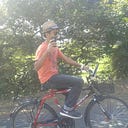Coronavirus has changed our lives drastically — our social interactions, our greetings, and our physical contact— those simple things that we take for granted have changed.
- Business meetings don’t end with handshakes, it starts with a wave of the hand and ends with the same (mostly happening over video platforms)
- Romantic couples are happy with kissing emojis :-* or blowing air kisses.
- Neighbors these days don’t visit each other homes, they wave and smile from their balconies. Luckily if you are living in a talented neighborhood, they might even sing, dance or play a game of tombola.
- Families & friends are organizing meetups, play games — tombola, quizzes over zoom & virtual conference platforms
Signs of changing times. With the world battling against the pandemic and physical distancing becoming a norm, greeting each other has taken a different turn. Handshakes and hugs which had become a widely popular greeting style across the globe is now an unwanted creature. The customs and social protocols which require two humans to touch and embrace each other has become a big no-no.
What does the future look like? — The way humans meet each other or show their affection with each other socially is going to change in the post-covid19 era. While this new coronavirus might be temporary, but chances of other viruses attacking human civilization in the future can’t be ignored. Physical contact between two individuals definitely poses a risk of transmission (if one of them is infected).
Though it might look and feel discourteous or rude for a society which is born and grown up doing a particular kind of custom, we need to ask ourselves, what is more important, life or creating another pandemic. In the post corona era, people need to change their habits in many respects, and greetings will be one of them. As Israeli PM Benjamin Netanyahu rightly suggested a few weeks back, that “we need to start doing things that are against human character”
Do we have any Solutions?
Let’s not lose hope, we still have a variety of social greetings that are extremely safe (in terms of virus transmission) and do not require any human to human touch. Here are a few candidates for consideration:
Namaste -
From Israeli Prime Minister to Prince Charles, to Donald Trump, many world leaders have advocated the Indian style of greetings ‘Namaste’. Traditional Indian style Namaste is when people join both their palms together and bring in front of their chest.
Donald Trump, in his typical style, even gave a comment of his greeting preference, when he met Prime Minister of Ireland.
Prince Charles attending an event got confused, whether to shake hands or just move on, finally deciding to greet with Namaste.
Salam or Aadab -
Popular among the Muslim communities, it is when a person makes a cup of his/her right-hand palm and brings it closer to his forehead.
Bow -
It is as simple as lowering your torso and head, mostly practiced in Japan, Vietnam, and Korea as a mark of showing respect. There are many variants of a bow, one in which there is only a slight bend of the upper body, then there is ‘wai’ practiced in Thailand, which is a low bow and also includes holding hands like ‘Namaste’.
Salute -
The other styles of greetings can be linked with religion or geography, but Salute is one such greeting that is universal across military establishments and armed forces. Putting the right hand on the forehead is a nice way to express your friendly intentions.
The wave of Hand -
Ever popular and as simple as a wave of a hand is enough to acknowledge the presence of someone.
Man is a social animal and it needs a way to appreciate and respect someone’s presence, hence the no-touch greetings mentioned above (or any other styles) can make way for the kisses and hand-shakes at least for the time being.
Things have already started changing
France, Germany, Brazil and many other countries around the world are advising no-touch policies. In a few instances, some countries have even banned certain rituals that require kissing, sharing food, etc. Even the religion is not spared, in another video that became viral recently, it shows Pope Francis pulling his hand away from people who tried to kiss. Kissing tradition is considered a mark of respect and obedience that dates back hundreds of years.
In a cricket match which happened a few days before this became pandemic, sportsmen who greet their teammates and their opponents with fist bumps and handshakes had to follow no-touch and elbow touch greetings.
Whether these incidents become a permanent ritual, time is only going to tell. In the meantime, Salam, Namaste, ByeBye, give your own style or you can simply clap below :-).
Originally published at http://changestarted.com on April 3, 2020.
